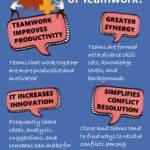
The Art of Speaking Concisely
Speaking concisely can be an important skill to have, especially in industries that involve frequent communication. This is because knowing how to speak concisely can help keep your conversations relevant and productive, and it might increase the chances of your audience retaining the information you provide.
You might benefit from learning how to speak more concisely if you notice that you spend long periods of time speaking or if you want to improve your ability to condense information.
In this article, we explore a list of steps to help you become a more concise speaker.
Plan what you want to say
One of the best ways to ensure you speak concisely is to plan what you would like to say before you start speaking. This can help you determine which ideas might be the most important to share by allowing you to consider everything you might include while speaking.
Planning ahead can also help you identify subjects that might not be relevant to all of your listeners, which can show you which pieces of information you can leave out of your speech or conversation.
To plan what you want to say, you can brainstorm and create a brief outline of what you can talk about that only includes topics that are directly relevant to the ideas you want to convey. For example, if you want to share a schedule update with your coworkers, you can include information like what the previous schedule was and what the new schedule is. However, you might omit hypothetical information like whether a schedule might change again in the future or who in the workplace won’t be affected by the change to remain concise.
Be mindful of over-explaining
Over-explaining can refer to the act of giving too much information about a certain subject. While it’s crucial to explain your ideas, you can be a more concise speaker by making sure you only give explanations when it’s completely necessary in order for your audience to understand you.
Otherwise, there can be the potential for over-explaining that might cause a conversation to run longer than it needs to. For example, if you’re giving a presentation about a project you complete, you might briefly touch on each of the steps you take to complete it, as giving detailed explanations for each step of the project might take too long.
However, you can include explanations for specific terminology or concepts that audience members might not be familiar with. In these cases, it can be helpful to use the most basic definitions possible to remain concise and offer clear definitions that audience members can access even without prior knowledge of the subject.
Try to refrain from using filler words
Filler words are interjections and phrases that speakers sometimes add during places where they’re thinking of the next detail to share. This can include words like “um,” “so” and “like” when they’re interspersed throughout a speech.
Trying to avoid using filler words can be an effective way to speak more concisely, as this can reduce the time you speak for and the number of words you use. Considering where you might use filler words can also give you the opportunity to fill those moments with relevant details or transitions to your next ideas.
For example, one way to stop using filler words is to replace each filler word you want to say with a pause and a phrase like, “Now we’re going to talk about the next topic.”
Use a specific example
Another great way to speak concisely is to use a specific example when you want to explain an idea or concept. This is because trying to explain something without using an example can sometimes result in frequent pauses, using filler words or speaking about topics that do not relate to your overall idea.
However, thinking of a specific example to refer to before you start speaking can offer you a clear plan for how you can explain something and reduce the time you need to explain it. When choosing an example to use, it’s helpful to make sure it’s brief and accessible to all audience members.
Consider your audience
Thinking about who you’re talking to can help you speak more concisely by allowing you to identify which pieces of information they might appreciate most. This can help you focus on details that apply to your audience and avoid including information that they might not need.
You can consider your audience by identifying qualifying characteristics like their job titles, backgrounds and areas of interest and discussing information that relates to those details. For example, if you’re talking to the marketing team, leaving out information that pertains only to the sales team can keep the conversation concise.
Record yourself speaking
One of the most effective ways to improve your speaking skills is to practice speaking on your own before addressing an audience. You can practice speaking on your own by recording yourself as you talk about what you hope to discuss out loud.
Then, you can listen to the recording and pay attention to details like how long you take to speak and whether you over-explain or use filler words. Once you hear yourself speak, you can make note of the changes you can implement to make your speaking more concise.
(Reference: https://www.indeed.com/)


